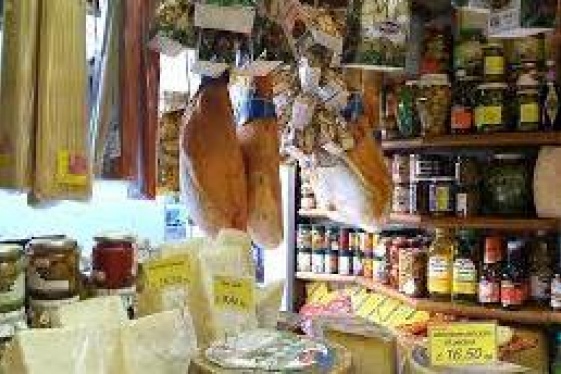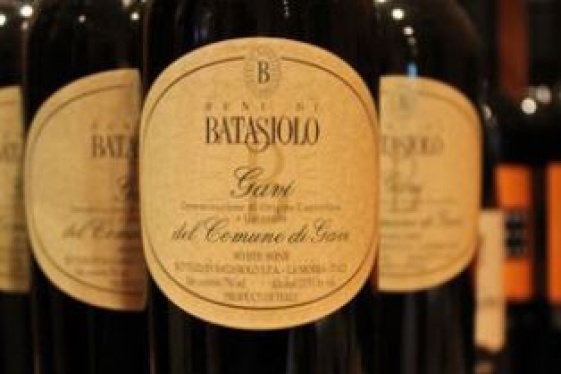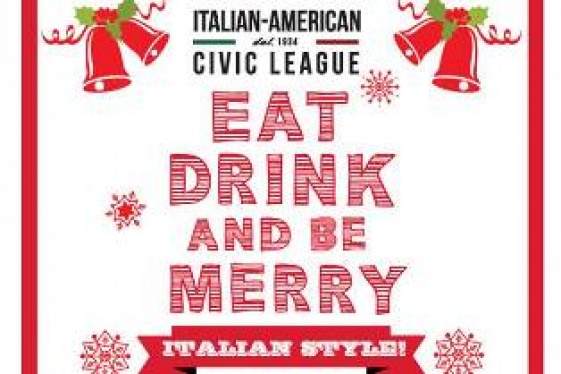

BY: Francesco Pontoriero
It’s Seven AM on a Saturday: I groan at the sound of my alarm and suddenly remember why the heck I woke up so early. It is ‘nduja weekend. I eat a Stella D’Oro cookie, drink a cappuccino and depart on the half hour pilgrimage down Route 78 to the house of Vincenza Pontoriero, my nonna. The weather is cold and overcast. I feel winter’s aggressive breeze as I stroll through the Ironbound.
I step along the dirty, tobacco-filled sidewalks to the only house with a tile roof on Garden Street: number 96. I open the black, rusty gate and walk up the bluestone steps. I ring the old, deteriorated bell of the home as my grandmother waddles towards the door. It opens. Bello mio! Come ti senti? Sei tanto grande! I’m flooded with the aggressiveness and excitement of an old, Italian woman that I know like the palm of my hand. Facciamo la‘nduja oggi!
At this point it is about eight as I walk down into my nonna’s basement in Newark. The basement’s kitchen is dilapidated. An old long table in the middle of the room is accompanied with dusty, lightly stained cabinetry with an encyclopedia’s worth of pictures within its drawers. A massive pig lays on the table wrapped in a large translucent bag. My nonna opens it, holding a footlong knife beginning to butcher the animal: piece by piece, cutlet by cutlet.
This goes on for hours until there is no longer a pig, but mounds of pink pork and white intestines along the table, not one piece of meat to go to waste. My nonna then brings out a steel machine to grind the pounds of meat into one large mound. My nonna turns on the machine as I hand her the pink filets she had just butchered. She throws the large lumps of meat into the machine. The machine eternally spewed out ground pork, letting out a groan upon each cutlet inserted in it. It had been roughly six hours since the start of the day when there were pounds of ground meat on my grandmother’s sturdy wooden table in place of a pig.
The second day of labor in the creation of ‘nduja started with filling sausage liner (the pig’s intestines) with the ground meat from the day before, then tediously tying it up using withered string from my nonna’s cabinets. After tying, the meat was hung in a smokehouse in my nonna’s backyard for a few weeks in preferably cold, dry conditions. The smokehouse is dark and cold with blackened walls and the remnants of newspaper, cardboard, and pork on the floor. I grabbed the piece of ‘nduja to place in the smokehouse, strategically based on its length and girth. Longer in the corners, shorter in the middle, since the shorter ones are further from the fire, I remembered my godfather tell me. I put the ‘nduja on a two-by-four hanging in the cinder block hut. It swung.
POOMPH! The two pound piece of raw ‘nduja fell down from the ceiling of the smokehouse and hit me straight in the face with its foul odor and cold, mushy feel. My uncle ran towards the smokehouse with the sound of the falling pork. He stared at me, said nothing and put on a grin. He started hysterically laughing at my facial expression upon a piece of sausage suddenly slapping me. After going through the tedious process of hanging the meat and hoping that it won’t fall, it is ready to eat. Throughout the ‘nduja process every year, 80’s Italian Music blares into worn speakers while my uncles make vulgar jokes about each other, their childhoods, and society. The tradition of making sausage in my family holds such a great value that not many can see. Most just take it at surface value: your family makes sausage out of a pig for fun every year. What most don’t understand is that although the process of making sausage may come off as gross, it unites my family every year and gives us pride in ourselves, our origins, and each other.
At this point you may be wondering: what is this “‘nduja” that my nonna mentioned? ‘Nduja (pronounced an-doo-sha) is a spreadable sausage that my family makes yearly in early January. ‘Nduja originates from my town in Italy, Spilinga, and is an extremely underground and underrated cured meat. It has only become popular recently in the United States, and what is sold in supermarkets is far less authentic than what my family makes, which was brought directly from Spilinga in 1971.
While my family makes ‘nduja, we bond like no other family in any other circumstance. Whether your sister is working the press or your uncle is pretending to be productive while watching a soccer game, my family connects through work. Although making ‘nduja takes hours out of a weekend that I could be spending with my friends, I make lifelong memories with my family that are only made while spending long hours together.
Not to mention, making ‘nduja reminds me of my origins. It reminds me of the rolling hills of western Calabria, where clocks roll at a slower pace and the elderly that reside there are refreshed by the ocean breeze rolling through the leaves of olive trees. When I eat ‘nduja it reminds me that Spilinga in the province of Vibo Valentia is my home, even though I’ve only been there once. Making ‘nduja reminds me of the sacrifices my nonni made in 1971 trekking to the United States with nothing but a bag’s worth of clothes. It reminds me of the conditions that my dad, uncles, and grandparents endured living in a one-room apartment in Newark, opening up a pizzeria and praying for its success. When I taste ‘nduja’s I remember my family’s accomplishment of the American dream- coming from nothing and becoming something. Making ‘nduja doesn’t just serve as a family bonding experience for the unnecessary murder of a pig. It’s my past.
Like my family, families all over the world share intimate and important traditions from their homelands. Unfortunately, many of these sacred traditions fade away through generations, as people get caught up in their daily lives and seemingly important activities. Yet, in reality, preserving traditions is one of the most important and beautiful things a family can do. It reasserts the importance of a connected family, the value of knowing one’s origins, and gives people a sense of pride and belonging that no job or school can fulfill. Wherever I go, I consistently seek to show others the importance of traditions, and encourage them to maintain their own family traditions, no matter how frivolous they may seem.
SOURCE: Silvio Laccetti Foundation
You may be interested
-
‘Fuggedaboudit’ the motto of new Italian del...
By Kimberly Sutton Love is what brought Tony Nicoletta to Texas from New York.The transpl...
-
1st Annual Little Italy Cannoli Tournament
Little Italy San Jose will be hosting a single elimination Cannoli tournament to coincide...
-
A Week in Emilia Romagna: An Italian Atmosp...
The Wine Consortium of Romagna, together with Consulate General of Italy in Boston, the Ho...
-
An Italian American Feast For Family Reunion...
Hey, come over here, kid, learn something. ... You see, you start out with a little bit of...
-
Buon Appetito! Unique Italian dining at Ragú...
There's something to be said for having your food prepared tableside. Guacamole tastes fre...
-
Chef Carmelo Mauro to host Beni Batasiolo Wi...
Fiorenzo Dogliani, owner of Beni di Batasiolo, will join Carmelo Mauro for an exclusive wi...
-
D'Amico's Italian Market Café expanding to K...
The popular D'Amico's Italian Market Café, a 16-year-old mainstay of Rice Village, is head...
-
Eat Drink And Be Merry IACL Christmas Party
Sunday December 14, 5.30 pmSole Mio - 8657 S Highland Dr, Sandy (Utah) 84093 The Italian...










